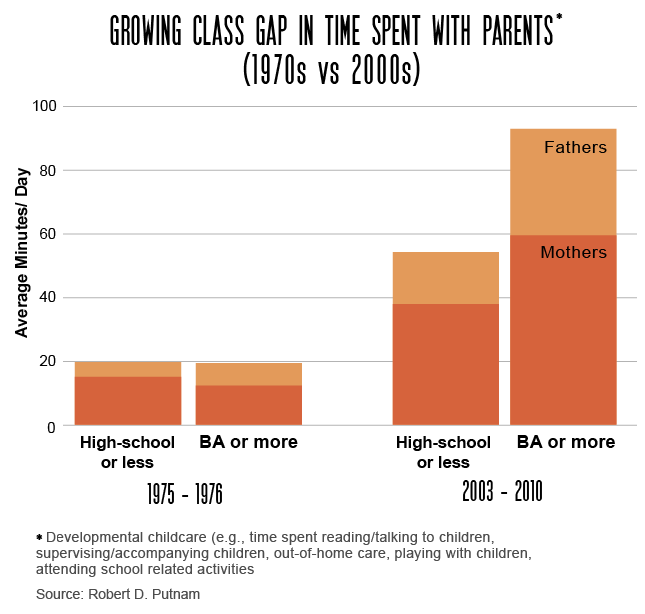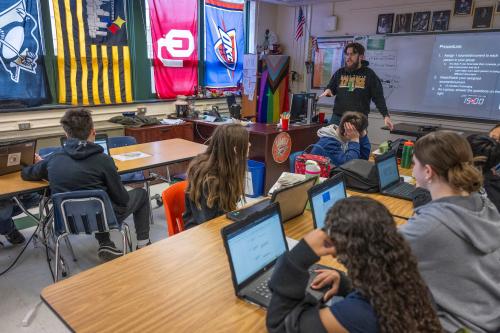In the latest Brookings Essay, Richard Reeves argues that the Horatio Alger ideal in America—that all individuals can succeed by their own efforts on a level playing field—is “on the ropes.” Social mobility rates in America are now lower than those in Europe, he says, risking America becoming an ossified, class-based society. Reeves, a fellow in Economic Studies and editor-in-chief of Social Mobility Memos, demonstrates social mobility performance in a variety of charts and tables in the essay. This one in particular shows how today’s parents with college degrees or better spend more time with their children than all parents in the 1970s and more than parents today without a college degree.
The graph is based on research by Harvard’s Robert Putnam. As Reeves explains in the essay:
Even the finest public school system in the world would be unable to compensate children for what Nobel laureate James Heckman calls the “biggest market failure of all”—choosing the wrong parents. Parents with college degrees have fewer children, later in life, and after marriage. And they are high-investment parents, spending generous amounts of time, energy, and money on their offspring. Class gaps in terms of parenting are not new, of course, but they are widening. In the 1970s, there were no serious differences in the amount of time spent with children by parents of differing education levels. Now there are significant disparities, which have come to be widely recognized thanks in large measure to the work of Robert Putnam (of Bowling Alone fame). There is also a gap in terms of how this time is spent—and it turns out that “quality” of time matters as well as quantity. Conversation is one example: children in the poorest families hear, on average, only 600 words per hour; those from the most affluent and highly educated families hear over 2,000 words per hour. By the age of 4, the total gap in words heard is estimated to be 30 million.
Learn more about the “parenting gap,” including data on words heard by children, in this paper by Reeves and Kimberly Howard. Visit the Brookings Essay, “Saving Horatio Alger: Equality, Opportunity, and the American Dream,” to learn more about this phenomenon and what Reeves has to say about reviving the promise of the American Dream.
The Brookings Institution is committed to quality, independence, and impact.
We are supported by a diverse array of funders. In line with our values and policies, each Brookings publication represents the sole views of its author(s).




Commentary
CHART: Today’s College-Educated Parents Spend a Lot More Time with Their Kids than Any Parents Did in the 1970s
August 27, 2014